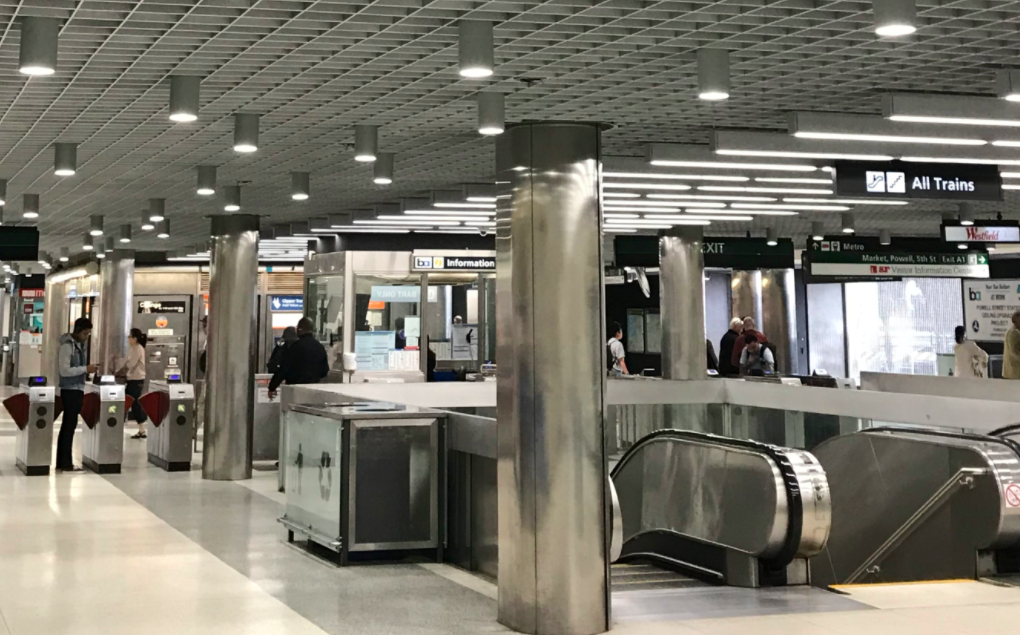I used to be young. Now I wear a winter jacket on a summer day. I shiver in 70-degree weather. I wither and shudder at the challenge when various escalators on public transport are out of order and I am forced to use the station elevators, which have often become dangerous, putrid smelling, make-shift bathrooms for the growing numbers of unhoused and disinherited in this country.
The “public” bathrooms themselves are often locked or are like wading into an open sewer pit in order to relieve yourself.

As far as available clean facilities for the public go, they have become a privilege for all those who can go into a coffee shop or bakery and buy your way into the bathroom with a Danish or a $3 cup of gourmet java. Otherwise you are out there on your own, on the sly for a safe place to relieve yourself, or else suffer the great indignities of wetting yourself in the public square.
Sometimes I spend most of my journey on public transport worrying if I’m going to be able to make it to the nearest available bathroom or be forced to let loose where I stand and become an instant spectacle. Sometimes you can see me searching for an inconspicuous corner in a train station or behind a tree near the bus stop.
And then there have been times where I was not able to delay the process of aging long enough to make it to a legitimate bathroom, or even to a semi-private corner or to the cup in my car.
Just a few days ago I had to risk arrest to avoid the personal calamity and public spectacle of wetting my pants during the morning rush. I made it all the way to the downstairs bathroom of my favorite downtown Berkeley Cafe and reached for the door handle and it was locked. The bathroom was occupied. I had no choice but to open the spigot and let loose with my own little Golden Gate arch into the corner next to the bathroom door.
In that 30 seconds of letting go, the feeling of relief mixed with the feeling of dread and sheer panic fearful that the door to the bathroom could open at any time and the occupant would be facing off with me in midstream. I could have peed all over the stranger.
Maybe he or she would scream and then call the police.
Help us save local journalism!
Every tax-deductible donation helps us grow to cover the issues that mean the most to our community. Become a 48 Hills Hero and support the only daily progressive news source in the Bay Area.
This is a true story but not only my story. I speak with friends and relatives and listeners to my nationally syndicated radio news show, Flashpoints. The stories are legion and very troubling. Older people and adults traveling with children are constantly compromised and traumatized by a failing infrastructure, built for private cars and the segregated suburban neighborhoods.
As Congress and the president consider the rebuilding of America’s infrastructure, in the context of global warming, they must be mindful of the multiple challenges that include “building back better” a mass transit system that is viable for working people, families, the poor and the elderly–a system that works for all of us and contributes to all of our quest for a greener safer world.
There’s little mention that Biden’s “infrastructure” plan is spending as much on long-term elder care as bridges, and the GOP hates it. They want to limit the bill to stuff that requires concrete and big trucks. But we need the infrastructure of living, of caring, not just moving from here to there.
Right-wing republicans and conservative democrats must realize that this isn’t only about restoring infrastructure to mitigate global rising sea levels–and all that crucial big stuff–the existential threat they now pose to the global village. It is also about restoring human dignity, about a system that no longer cares about the simple worries or needs of average people.
Why does Biden propose taxpayers fund virtually unlimited places to plug in your Tesla, but nothing for a place to relieve yourself? Why is it more important to be able to recharge your luxury car than to discharge yourself with a modicum of dignity?
How about this for a working proposal: For every electric charging station, let’s make sure there is a commitment to “build back better” with an equal number of public restrooms. Restrooms that are clean and functional where parents can go to change their children’s dirty diapers, to breastfeed in private, or change tampons, when doing so in public might put the person or child in jeopardy.
It is simply no longer debatable; Effective and humane public transportation is a key and crucial aspect in the quest to save the planet. Clean, functional, and conveniently placed public restrooms need to be part of this new and humane green vision that so many of us have joined across generations to fight for.
Dennis J Bernstein lives in San Francisco. He is the award-winning host/producer of Flashpoints, syndicated on public and community radio stations across the United States. Bernstein is also an award-winning poet, most recently the author of Five Oceans in a Teaspoon; Five oceans won the 2020 IPPY Gold Medal Award for Poetry and the 2020 Best Book Award for Poetry by the American Bookfest.Bernstein is also the recipient of many awards for his journalism, including the 2015 Pillar Award in Broadcast Journalism. Bernstein’s articles and essays have appeared in numerous newspapers and magazines including The New York Times, Denver Post, Philadelphia Enquirer, Newsday, The Nation, and many others.





